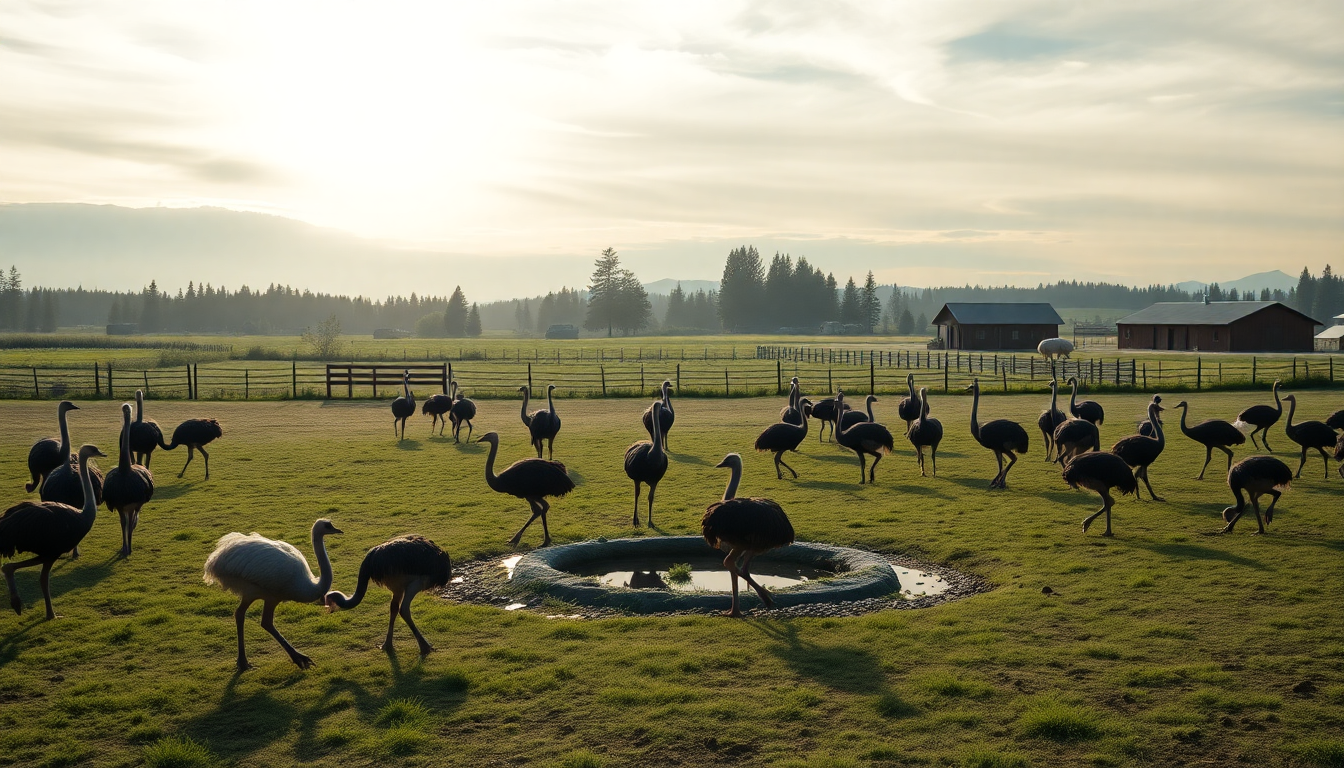Table of Contents
The Federal Court of Appeal has just made a noteworthy ruling that could change the game for an ostrich farm in British Columbia. This decision offers a temporary lifeline for the farm’s owners, who have been fighting against a mandated cull of their birds due to concerns over avian flu. With public attention and support rallying around the farm, this situation raises important questions about animal welfare and the government’s agricultural policies. What does this mean for the future of animal farming in Canada?
Background of the Case
The conflict kicked off when the Canadian Food Inspection Agency (CFIA) ordered the culling of around 400 ostriches at Universal Ostrich Farms in Edgewood, B.C. This drastic measure followed an outbreak of avian flu that led to the deaths of several ostriches. The CFIA’s “stamping out” policy requires that infected flocks be removed to curb the disease’s spread. However, the farm’s owners decided to push back, seeking to conduct additional tests on their birds before any drastic actions were taken.
On Friday, the court granted a crucial temporary stay on the cull, allowing the farm to keep its operations running while the appeal unfolds. This ruling is significant; it acknowledges the potential irreversible damage to the farm’s business and the animals if the cull were to go ahead without proper testing and a chance for appeal. Could this be a turning point in how such cases are handled?
The Court’s Decision and Implications
Judge Sylvie Roussel’s ruling emphasized that Universal Ostrich Farms met all three criteria needed for a temporary stay. While the CFIA’s strict policies and the serious nature of the avian flu outbreak cannot be ignored, the court recognized the necessity of balancing public health concerns with the rights of the farm owners. However, the judge’s refusal to allow further testing raises questions about transparency and the rationale behind these decisions. Are we truly considering all angles here?
Supporters of the farm have taken to the streets, camping on-site to advocate for the ostriches. This grassroots movement, paired with appeals from notable figures in the U.S. urging for the birds to be spared due to their potential scientific value, has brought significant attention to the farm’s plight. The community’s involvement underscores the critical need for humane treatment of animals in agriculture and calls for a thorough review of the policies that govern these situations. How can we ensure that animal welfare is prioritized in such decisions?
Looking Ahead: Future Developments
The upcoming appeal, set for the week of July 21, is pivotal not only for the fate of these ostriches but also for what it could mean for broader agricultural policies and animal welfare standards in Canada. As the legal proceedings unfold, various stakeholders—including animal rights advocates, agricultural experts, and the general public—will be keeping a close watch. What will this mean for the future of farming and animal rights?
The decision to grant a stay reflects a growing awareness of the complex interplay between animal agriculture, public health, and ethical considerations. It serves as a reminder of the importance of due process in situations that affect livelihoods and animal welfare. As this case progresses, it may well set a precedent for how similar cases are approached in the future, highlighting the need for a balanced perspective that respects both agricultural practices and the rights of animals. Are we ready to have these important discussions?


